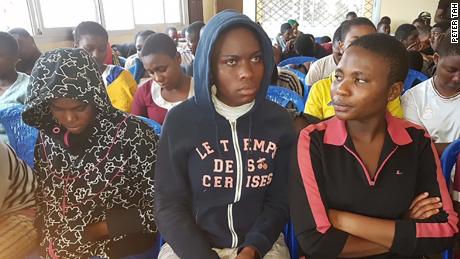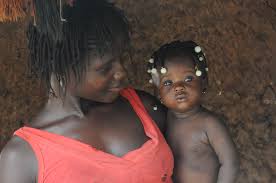With it now being estimated that 1 in 6 children globally are living in a conflict zone, it is harder than ever for youngsters to safely navigate their way to adulthood. Unfortunately, for females living in these zones, a big problem they face is teenage pregnancy.
For most people, their first thought when speaking about this would be that the girls are victims of sexual violence that shockingly seems to go hand in hand with conflict; and it’s true, many of these girls will suffer at the hands of soldiers and predators who take advantage of an unstable and helpless situation.
For most people, their first thought when speaking about this would be that the girls are victims of sexual violence that shockingly seems to go hand in hand with conflict; and it’s true, many of these girls will suffer at the hands of soldiers and predators who take advantage of an unstable and helpless situation.
Lack of education

However, another big issue is education, there is a distinct correlation between teenage pregnancy and lack of education, and since education is minimal or often non-existent in conflict zones, this, in turn, adds to the number of teenage pregnancies. But, it is not only because these teens don’t know the consequences of sex, or how to have safe sex, but so many of these regions follow traditions from thousands of years ago that allow children to be forced to marry adults. If a country or region can’t have access to a good education, then traditions that we know to be extremely outdated, are enabled to stay.
This is clear when looking at the global statistics, for example, South Korea has for many years been the world’s most educated country, and they have the lowest number of teenage pregnancies. Whereas, the sub-Saharah countries in Africa, have all been in various degrees of conflict for a large number of years, and they are also the countries that have the highest recorded number of teenage pregnancies.
This is clear when looking at the global statistics, for example, South Korea has for many years been the world’s most educated country, and they have the lowest number of teenage pregnancies. Whereas, the sub-Saharah countries in Africa, have all been in various degrees of conflict for a large number of years, and they are also the countries that have the highest recorded number of teenage pregnancies.
State of war
Unfortunately, the civilians in conflict zones must live in a vicious cycle; their region is in a state of war, which causes a vast decrease in education, and the absence of education increases the longevity and intensity of the conflict. And even if the conflict ends, the destruction left behind means there isn’t a stable enough economy to put money into education, and thus it continues.
The teenage pregnancy rate in Western countries is decreasing each year, due to the fact that in general, the West has more stability, less sexual crime, firm laws against marrying children, and resources to help educate the younger ones. The link between conflict zones and an increase in teenage pregnancy is clear.
The teenage pregnancy rate in Western countries is decreasing each year, due to the fact that in general, the West has more stability, less sexual crime, firm laws against marrying children, and resources to help educate the younger ones. The link between conflict zones and an increase in teenage pregnancy is clear.

